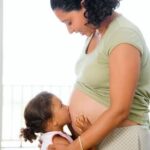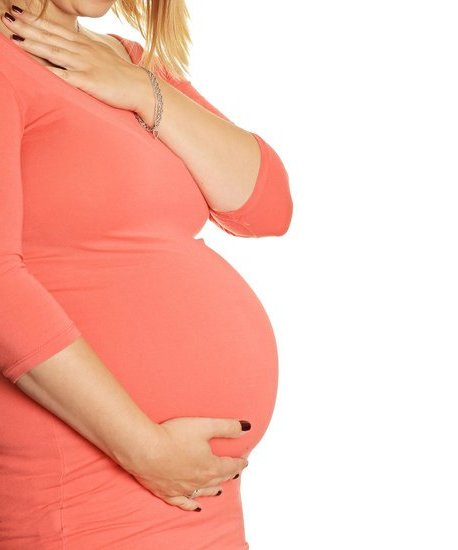Pregnancy is a miraculous journey that brings about numerous physical and emotional changes in a woman’s body. One of the most eagerly anticipated signs of pregnancy are the symptoms that come with it, indicating the beginning of a new chapter in one’s life.
In this article, we will explore the intriguing question: how soon pregnancy symptoms appear after conception? Understanding the timing and nature of these symptoms can provide valuable insight into what to expect during those initial stages of pregnancy.
Early pregnancy symptoms can vary widely among women, with some experiencing them as early as a few days after conception, while others may not notice any significant changes until weeks later. These symptoms serve as subtle hints from your body that something special is happening within. From nausea and fatigue to tender breasts and frequent urination, these bodily signals can sometimes be mistaken for other conditions or simply brushed aside as everyday discomforts.
It is crucial for women to familiarize themselves with both common and uncommon early pregnancy symptoms in order to accurately interpret their body’s signals. By recognizing the signs such as implantation bleeding, heightened sense of smell, or food aversions, individuals can better understand the changes taking place within them.
Factors such as hormonal fluctuations, lifestyle choices, and individual health conditions can also play a role in influencing when pregnancy symptoms make their grand entrance. Understanding these factors can help demystify the experience for many expecting mothers.
Understanding the Timing of Pregnancy Symptoms
Early Signs vs. Early Symptoms
When it comes to understanding the timing of pregnancy symptoms, it’s important to differentiate between early signs of pregnancy and early symptoms. Early signs refer to physical changes that occur in the body after conception, such as implantation bleeding or a missed period. On the other hand, early symptoms are the physical and emotional changes experienced by women that indicate a possible pregnancy, such as nausea or breast tenderness.
Timeline of Pregnancy Symptoms
The timeline for when pregnancy symptoms may appear can vary from woman to woman. Some women may experience early symptoms as soon as a few days after conception, while others may not notice any changes until weeks later. Typically, most women start experiencing early pregnancy symptoms around 6-8 weeks after their last menstrual period. However, some women may notice subtle signs even earlier.
The Role of Hormones
Hormones play a crucial role in triggering pregnancy symptoms. After conception, levels of human chorionic gonadotropin (hCG) and progesterone rapidly increase in the body, leading to various symptoms like fatigue, frequent urination, and heightened sense of smell. These hormonal changes can also contribute to mood swings and food cravings in pregnant women. Understanding these hormonal shifts can help women recognize and interpret their early pregnancy symptoms accurately.
Common Early Pregnancy Symptoms
Overview of Common Early Pregnancy Symptoms
Many women experience a range of symptoms in the early stages of pregnancy, some of which may start as soon as a week after conception. These symptoms can vary from woman to woman and may also differ from one pregnancy to another. It is important for women who suspect they might be pregnant to understand these common signs to better prepare themselves for what lies ahead.
Nausea and Morning Sickness
One of the most well-known early pregnancy symptoms is nausea, often accompanied by vomiting, which is commonly referred to as morning sickness. This symptom typically begins around the sixth week of pregnancy but can start as early as two weeks after conception. The exact cause of morning sickness is not fully understood, but hormonal changes are believed to play a significant role in triggering this sensation.
Fatigue and Breast Tenderness
Feeling unusually tired or fatigued is another common symptom that may indicate pregnancy. Many women report feeling exhausted even though they haven’t engaged in strenuous activities. Additionally, breast tenderness or sensitivity can also be an early sign of pregnancy, with breasts feeling sore and swollen due to hormonal changes. These symptoms can appear around the time a woman expects her period but may continue or worsen over time for pregnant women.
Uncommon Early Pregnancy Symptoms
During the early stages of pregnancy, women often experience a range of symptoms that are commonly associated with this significant event. While some symptoms like nausea, fatigue, and breast tenderness are well-known, there are also some less common signs that may indicate pregnancy.
One uncommon early pregnancy symptom is a metallic taste in the mouth, which some women describe as akin to having coins in their mouths. This unusual sensation can occur as early as one to two weeks after conception.
Another less common symptom of early pregnancy is frequent headaches. These headaches may be caused by hormonal changes in the body and can be persistent or occasional during the first trimester. Additionally, some women may notice a heightened sense of smell as an early sign of pregnancy. This increased sensitivity to odors could lead to aversions to certain foods or scents that were previously enjoyable.
| Uncommon Early Pregnancy Symptoms | Description |
|---|---|
| Metallic Taste in Mouth | Described as similar to having coins in the mouth; can occur one to two weeks after conception. |
| Frequent Headaches | Caused by hormonal changes; may be persistent or occasional during the first trimester. |
| Heightened Sense of Smell | Increased sensitivity to odors leading to aversions; can be an early indicator of pregnancy. |
Factors That Influence When Pregnancy Symptoms Appear
When it comes to pregnancy symptoms, the timing of when they appear can vary from woman to woman. Several factors influence when these symptoms may start manifesting, such as hormonal changes, individual body chemistry, and even stress levels. Understanding these factors can help women better prepare for and recognize early signs of pregnancy.
Here are some key factors that can influence when pregnancy symptoms appear:
- Individual Hormone Levels: Hormonal changes play a significant role in the onset of pregnancy symptoms. Some women may experience symptoms earlier due to higher levels of hormones like hCG (human chorionic gonadotropin) in their system.
- Body Chemistry: Every woman’s body is different, and this can also affect how soon pregnancy symptoms may appear. Factors like metabolism, sensitivity to hormones, and overall health can impact the timing and intensity of these symptoms.
- Stress Levels: High levels of stress can impact hormone production and balance in the body, potentially delaying or intensifying pregnancy symptoms. Managing stress through relaxation techniques or seeking support can help alleviate these effects.
It is essential for women to listen to their bodies and pay attention to any changes they may be experiencing. By understanding these influencing factors, women can better navigate the early stages of pregnancy and seek appropriate care if needed. If unsure about potential pregnancy symptoms or timing, consulting with a healthcare provider can provide clarity and guidance on next steps.
How Early Can Pregnancy Symptoms Start After Conception?
After conception, many women eagerly anticipate the onset of pregnancy symptoms as a sign that they may be expecting. So, just how soon can pregnancy symptoms start after conception? While every woman’s body is different, most early pregnancy symptoms typically start to appear around one to two weeks after conception. This is usually before a missed period which makes it a crucial time for women trying to conceive or those who suspect they might be pregnant.
One of the earliest signs of pregnancy can be implantation bleeding or spotting which occurs 6-12 days after conception when the fertilized egg attaches itself to the uterine lining. This may be followed by other common early pregnancy symptoms such as fatigue, breast tenderness, nausea and vomiting, frequent urination, and heightened sense of smell. Some women may also experience mood swings, food aversions or cravings, and even mild cramping.
It’s important to note that not all women will experience all these symptoms and some may not experience any until later in their pregnancies. Factors such as hormone levels, individual body chemistry, overall health, stress levels, and genetic predispositions can all influence when these symptoms appear and how intense they may be.
As always, if you suspect you may be pregnant but are unsure about your symptoms or timing, it’s best to consult with a healthcare provider for personalized advice and guidance.
How to Differentiate Pregnancy Symptoms From PMS
When it comes to early pregnancy symptoms, many women may find themselves wondering how soon these signs of pregnancy will appear and if they can be distinguished from premenstrual symptoms (PMS). The timing of when pregnancy symptoms can start after conception varies from woman to woman, with some experiencing them as early as a week after conception. Understanding the differences between pregnancy symptoms and PMS is crucial for women who are trying to conceive or suspect they may be pregnant.
Common signs of early pregnancy include missed periods, fatigue, nausea, breast tenderness, frequent urination, and mood swings. While some of these symptoms can also be associated with PMS, there are certain indicators that may help differentiate between the two. For instance, a missed period is one of the most obvious signs of pregnancy, especially if a woman has regular menstrual cycles. Additionally, nausea and vomiting that is not typical for a woman’s PMS symptoms may suggest early pregnancy.
On the other hand, uncommon early pregnancy symptoms such as spotting or light bleeding, cramping or abdominal pain, headaches, dizziness, and food aversions can also occur. These symptoms may cause confusion as they overlap with potential signs of PMS. However, the key differences lie in the intensity and duration of these symptoms. It is important for women to pay attention to their bodies and track any unusual changes or patterns that may indicate early pregnancy rather than PMS.
When to Take a Pregnancy Test Based on Symptoms
When it comes to determining when to take a pregnancy test based on symptoms, timing is crucial. While some women may experience early pregnancy symptoms as soon as a week after conception, others may not notice any signs until a few weeks later. It’s important to pay attention to your body and be aware of the typical indicators of pregnancy.
Here are some guidelines on when to consider taking a pregnancy test based on common early pregnancy symptoms:
- Missed period: One of the most obvious signs of pregnancy is a missed period. If you have a regular menstrual cycle and it’s been over a week since your expected period date, it may be time to take a pregnancy test.
- Nausea and vomiting: Morning sickness can start as early as two weeks after conception for some women. If you’re experiencing frequent nausea or vomiting, especially in the mornings, it might be worth taking a test.
- Breast changes: Tender or swollen breasts can be an early sign of pregnancy that occurs within the first few weeks. If you notice changes in your breast tissue along with other symptoms, consider taking a test.
Remember that every woman’s body is different, so some may experience these symptoms earlier or later than others. If you suspect you may be pregnant but are unsure about when to take a test, consult with your healthcare provider for personalized advice.
Additionally, keep in mind that home pregnancy tests are most accurate when taken at least one week after your missed period. Taking a test too early can result in false negatives. If you’re still unsure about whether you should take a test based on your symptoms, seek guidance from a medical professional for further clarification.
Ultimately, listening to your body and staying informed about common signs of early pregnancy can help you better understand when it may be appropriate to take a pregnancy test based on symptoms.
Conclusion and Advice for Women Experiencing Early Pregnancy Symptoms
Experiencing early pregnancy symptoms can be an exciting yet nerve-wracking time for many women. From fatigue to nausea, these signs can vary greatly from person to person, making it important to understand the timing and common symptoms associated with early pregnancy. It is essential for women to pay attention to their bodies and take note of any changes they may be experiencing.
While some women may start noticing pregnancy symptoms as early as a week after conception, others may not experience any until a few weeks later. Factors such as individual hormonal levels, overall health, and even stress levels can influence when these symptoms manifest. However, it is crucial for women to remember that every pregnancy is unique, and what may be normal for one person may differ for another.
If you suspect you might be pregnant based on the symptoms you are experiencing, it is advisable to take a pregnancy test to confirm. Understanding how to differentiate between pregnancy symptoms and PMS can help alleviate anxiety and provide clarity. Additionally, seeking guidance from a healthcare provider can offer valuable support and advice during this delicate time. Remember, always prioritize self-care and listen to your body throughout this journey of early pregnancy symptoms.
Frequently Asked Questions
How Can I Tell if Im Pregnant After 1 Week?
It may be challenging to detect pregnancy after just one week, as most home pregnancy tests are not sensitive enough to pick up on hormonal changes that early. The earliest you may notice signs of pregnancy could be around two weeks after conception.
How Quickly Do Pregnancy Symptoms Start?
Pregnancy symptoms can vary from woman to woman, but they typically start appearing around 6-8 weeks after conception. Some common early signs include missed periods, nausea, fatigue, and breast tenderness. However, every woman’s experience is unique.
How Soon Can You Know if You Are Pregnant?
The timing for knowing if you are pregnant can depend on various factors such as the regularity of your menstrual cycle and when you had intercourse. In general, most home pregnancy tests can provide accurate results as early as one week after a missed period.
For even earlier detection, there are highly sensitive tests available that can give results a few days before your expected period.

Welcome to my fertility blog. This is a space where I will be sharing my experiences as I navigate through the world of fertility treatments, as well as provide information and resources about fertility and pregnancy.





